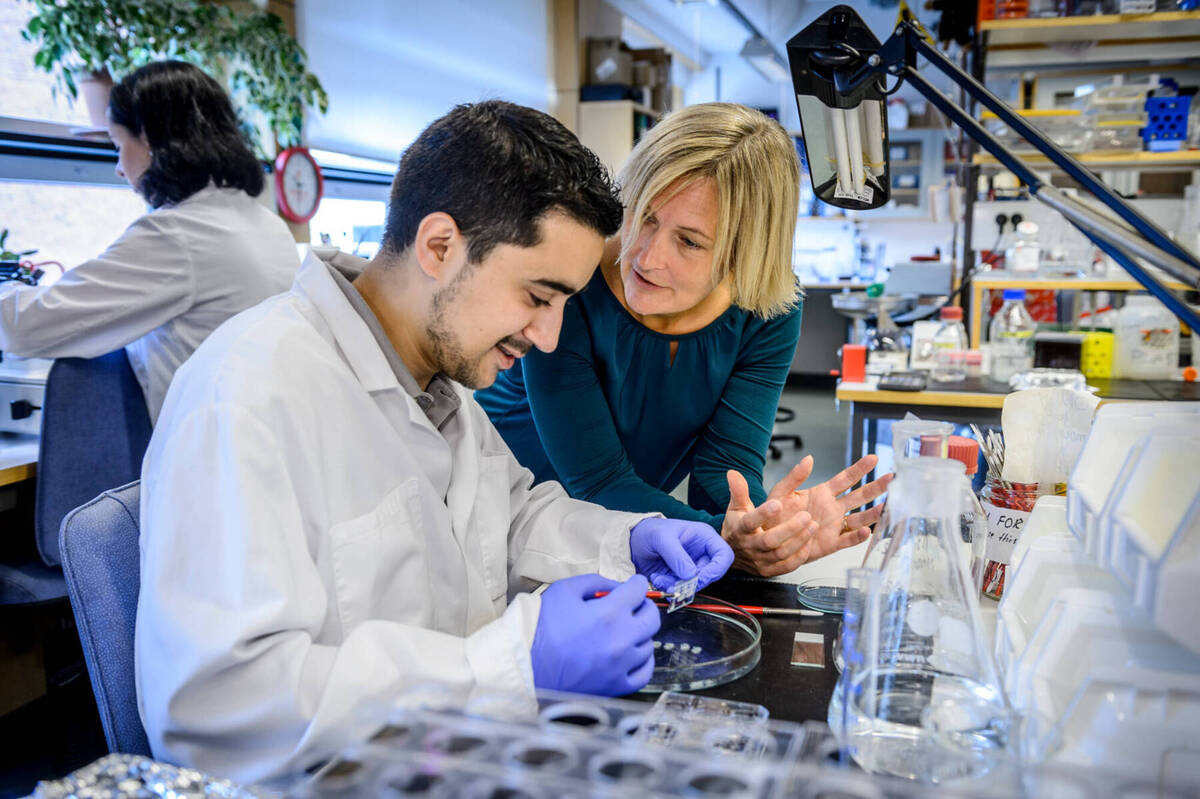Doctoral students in nanomaterials research - Hiring in process/Finished, not possible to apply
This advert is not available!
Lund University, Kemi centrum, NAT
Lund University was founded in 1666 and is repeatedly ranked among the world’s top universities. The University has around 47 000 students and more than 8 800 staff based in Lund, Helsingborg and Malmö. We are united in our efforts to understand, explain and improve our world and the human condition.
Lund University welcomes applicants with diverse backgrounds and experiences. We regard gender equality and diversity as a strength and an asset.
Subject description
The Nanochemistry and Spectroscopy group (https://www.chemphys.lu.se/research/groups/baranov-group/) at the Division of Chemical Physics is seeking one-two doctoral students to explore nanomaterials, self assembly, and collective phenomena. Solution processed nanomaterials, including nanoparticles, mesocrystals, and thin films, offer a promising, low cost platform for optoelectronics and quantum technologies. The potential of the nanomaterials is further expanded when self assembly is used to organize nanoscale building blocks into hierarchical structures that exhibit collective properties such as superradiance, superfluorescence, and enhanced exciton transport.
Future progress in this exciting field will be enabled by advancing beyond heavy metal compositions (e.g., away from lead and cadmium containing semiconductors), gaining a deeper understanding of self assembly mechanisms and the structure of assemblies, identifying robust experimental signatures of collective behavior, developing practical applications, and utilizing the power of artificial intelligence and machine learning for discovery of novel materials and properties.
Exploring these directions is the focus of the doctoral studies with a goal to develop novel nanomaterials that exhibit collective phenomena and enable next generation technologies. The positions are funded by the European Research Council Starting Grant “Prometheus: Engineering of Superfluorescent Nanocrystal Solids” and the Swedish Research Council (VR) Starting Grant “Nanocrystal Solids for Quantum Technology.”
Work duties
The main duties of doctoral students are to devote themselves to their research studies which includes participating in research projects and third cycle courses. The work duties will also include teaching and other departmental duties (no more than 20%).
The exact work duties will be determined by the overlap of the interests and motivation of the doctorand and the objectives of the research projects. In general, the studies will combine experimental, theoretical, and computational aspects, with the balance between them determined by the research question. The studies may involve but not limited to the research of synthesis and self of nanomaterials (colloidal quantum dots and related materials), investigation of their structure, composition, and light emitting properties through optical spectroscopies, X-ray scattering, and data analysis. The studies may involve but not limited to the design of experiments and high throughput synthesis, use of artificial intelligence and machine learning for analysis of research literature and data, the development of novel applications of nanomaterials in optoelectronics and quantum technology. The studies will be carried out in collaboration with research groups possessing complementary expertise and will include opportunities to design and conduct unique experiments at national user facilities such as MAX IV.
Admission requirements
A person meets the general admission requirements for third cycle courses and study programmes if the applicant:
- has been awarded a second cycle qualification, or
- has satisfied the requirements for courses comprising at least 240 credits of which at least 60 credits were awarded in the second cycle, or
- has acquired substantially equivalent knowledge in some other way in Sweden or abroad.
A person meets the specific admission requirements for third cycle studies in Chemical Physics if the applicant has:
- A minimum of 120 credits are to derive from courses in science or engineering e.g. chemistry or physics, of which at least 30 credits from a second cycle degree project (or equivalent) in chemical physics, physical chemistry or a closely related specialisation. The specific entry requirements can also be fulfilled through an equivalent programme. This is assessed on a case-by-case basis.
Additional requirements:
- Very good oral and written proficiency in English.
- Experience with data analysis and modeling tools (for example, Matlab, Python, Julia)
Assessment criteria
Selection for third cycle studies is based on the student’s potential to profit from such studies. The assessment of potential is made primarily on the basis of academic results from the first and second cycle. Special attention is paid to the following:
- Knowledge and skills relevant to the thesis project and the subject of study.
- An assessment of ability to work independently and to formulate and tackle research problems.
- Written and oral communication skills
- Other experience relevant to the third cycle studies, e.g. professional experience.
Consideration will also be given to good collaborative skills, drive and independence, and how the applicant, through his or her experience and skills, is deemed to have the abilities necessary for successfully completing the third cycle programme.
Terms of employment
Only those admitted to third cycle studies may be appointed to a doctoral studentship. Doctoral studentships are regulated in the Higher Education Ordinance (1993:100), chapter 5, 1-7 §§.
Instructions on how to apply
Applications shall be written in English and include:
- A cover letter stating the reasons why you are interested in the position and in what way the research project corresponds to your interests and educational background.
- A brief proposal of independent research matching the subject description. Maxium 2 pages.
- The application must also contain a CV, degree certificate or equivalent, and other documents you wish to be considered (grade transcripts, contact information for your references, letters of recommendation, etc.).
| Type of employment | Temporary position |
|---|---|
| First day of employment | 2025-09-01 or as agreed |
| Salary | Monthly salary |
| Number of positions | 2 |
| Full-time equivalent | 100 |
| City | Lund |
| County | Skåne län |
| Country | Sweden |
| Reference number | PA2025/1578 |
| Contact |
|
| Union representative |
|
| Published | 09.May.2025 |
| Last application date | 30.May.2025 |

